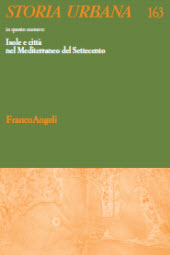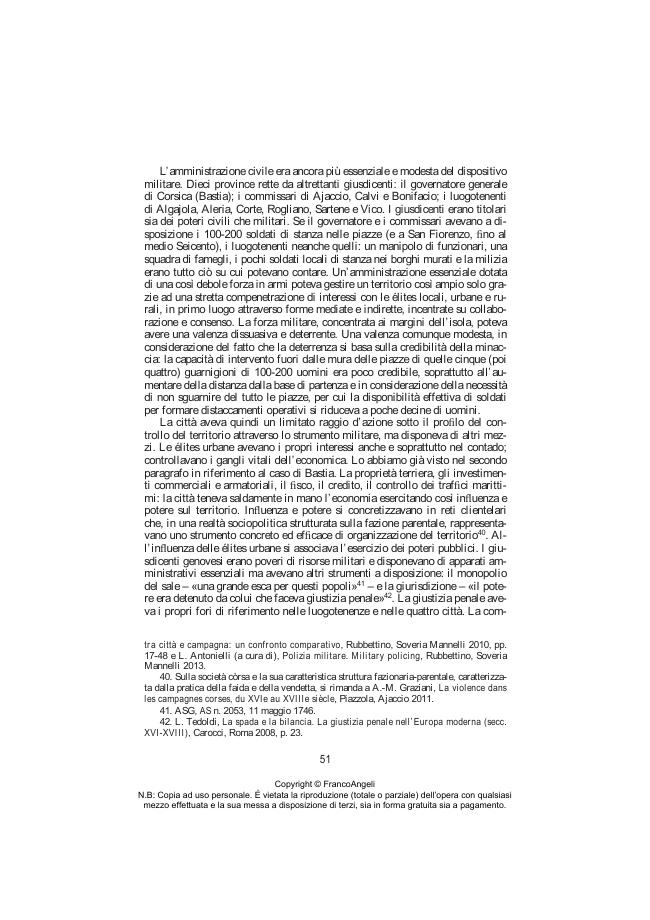Le piazze di Corsica : bastioni di Genova in un territorio ostile (1700-1768)
41-61 p.
Corsican wars have been interpreted for a long time as a struggle of an oppressed people against Genoa, a Dominante in decline, fossilized and brutal. Recent studies has deeply changed this point of view: not just a rebellion against Genoa, but also a civil war between rebels and loyalists, a conflict between the traditional élites linked with Genoa and the emerging élites and between the city and the countryside. This was a long-term conflict (from 1729 to 1768), when the polarization city-mountain strongly emerged. Genoa, financially and militarily modest, could compete for almost 40 years firstly because of the command (and loyalty) of the four main cities of the island (Bastia, Calvi, Ajaccio and Bonifacio).
These four cities were ports, as well as keystones of the coastal defense system, administrative headquarters and reference points for sociopolitical dynamics of the island for over a century and a half. In an essentially demilitarized island, since 1729 these four cities were involved in an internal and chaotic conflict. This conflict took advantage of the role of bastions (presidi) of the Genoese presence on the island, of carriers through which Genoa exerted its power and its influence on territory, by organizing and reorganizing it. This war determined a change in the pattern of the relationship between Genoa, insular cities and territories, with multiple new inclinations and unprecedented meanings. [Publisher's text].
Forma parte de
Storia urbana : rivista di studi sulle trasformazioni della città e del territorio in età moderna : 163, 2, 2019-
Artículos del mismo número (disponibles individualmente)
-
Información
Código DOI: 10.3280/SU2019-163003
ISSN: 1972-5523
MATERIAS
KEYWORDS
- Piazzaforte, Controllo del territorio, Controllo del mare, Guerra Repubblica di Genova, Corsica
- Fortified town, territory control, maritime control, war, Genoese Republic, Corse



